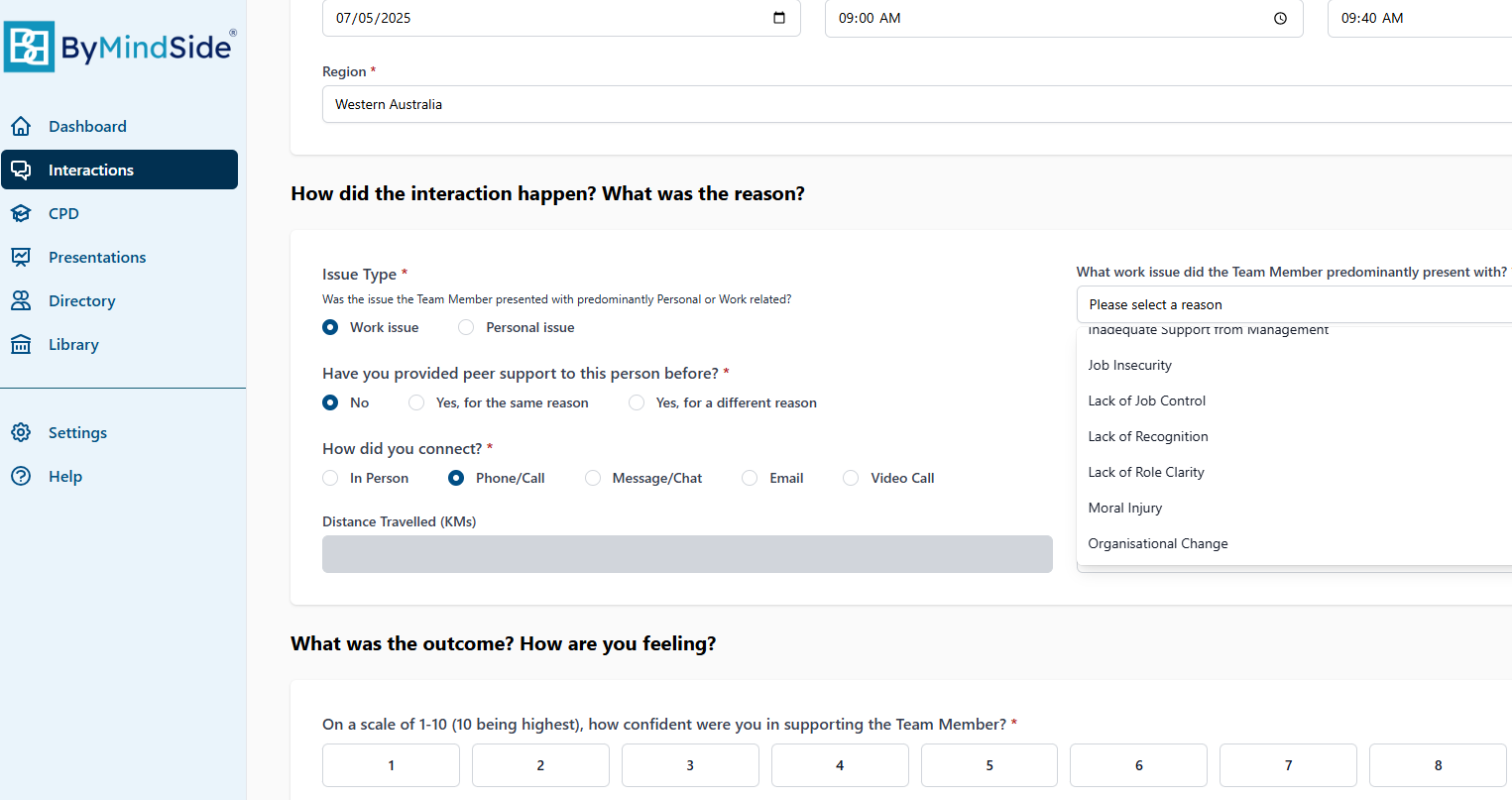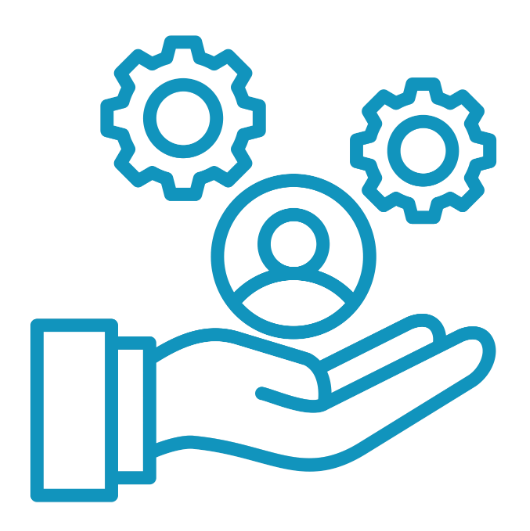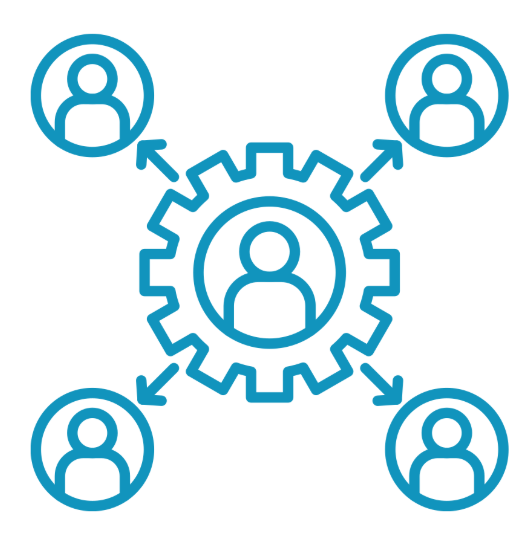Amplify your peer support team.
Real-time insights and expert oversight to lighten the load and boost impact.
A helping hand, beyond the platform.
Our Peer Support Portal gives you the visibility and reporting you need. But some workplaces have told us the same thing:
“We love the data… we just don’t have time to act on it.”
That is why we have developed services for those who want more than just the technology and data. They want ongoing support to run safe, effective, and sustainable programs.
It’s peer support with a human touch, backed by real-time insight.
Why we built this.
We saw great programs stutter.
Not from lack of care, but capacity.
Peer support programs often start strong but struggle to maintain momentum. We have seen it first-hand: overwhelmed coordinators, missed red flags, and peer supporters left to carry the emotional load.
That’s why we created Peer Support Coordinator (PSC) Assist and Assist+ to bridge the gap between insight and action, and help programs thrive over the long term.
Tune into psychosocial risks.
Workplaces are now expected to manage psychosocial risks such as inadequate support, exposure to distressing situations, and lack of role clarity.
Yet peer supporters, who are often first to hear about these risks, rarely have the systems in place to escalate or track them safely.
PSC Assist and Assist+ help your program meet psychosocial safety requirements by:
Flagging emerging risks early
Providing a protective framework to support those who support others
Reporting peer support trends aligned to psychosocial hazard codes
Identifying over-reliance on individual supporters
It’s a practical, people-first way to support your psychosocial risk mitigation journey.
Looking for tips on how to set up a sustainable and effective workplace peer support program?
Download our free Peer Support Guide.
Introducing
Peer Support Coordinator (PSC)
Assist & Assist+…
A smart support layer for your peer support program
PSC Assist and Assist+ are service overlays on top of our Peer Support Portal, designed to give your program the structure, oversight, and insight it needs to remain healthy and high-impact.
Whether you have a dedicated Peer Support Coordinator or not, we help fill the gaps, so your team stays safe and supported.
Our services include:
Monthly program insights from your Peer Support Portal
Proactive flag monitoring
Recommendations for training, supervision and resource sharing
Proactive liaison with peer supporters and leadership
All backed up by our Peer Support Portal technology and delivered by experienced specialists who understand the pressures of running a peer support program.
Two options, same goal. A stronger, safer program.
PSC Assist
Light-touch support to enhance your Peer Support Portal. Ideal for teams with dedicated internal coordination in place.
Includes:
✓ Recruitment & Selection Support
✓ Monthly Themes & Conversation Starters
✓ Supervision Topic Suggestions
✓ Quarterly Supporter Community Sessions
✓ Custom Recognition Message Templates
✓ Detailed Monthly Reports
✓ Annual Program Health Check
PSC Assist+
Hands-on support for your Peer Support Portal. Ideal for teams who want help running the program day-to-day.
Everything in Assist, plus:
✓ Dedicated Program Coordinator
✓ Program Evolution Planning
✓ Proactive Peer Supporter Outreach
✓ Online Monthly Drop-in Hours
✓ Training & CPD Suggestions
✓ Accreditation and Refresher Management
✓ Annual Executive Impact Report
How it works
We work in the background, so you can focus on people.
We connect your Peer Support Portal
We monitor patterns, risks, and trends
You receive monthly insights, alerts, and recommendations
We support your coordinators (or act as one, if needed)
Your program stays safe, structured and sustainable
Programs don’t just need passion. They need protection.
Without adequate support, peer support programs can become unsafe for the supporters and the people they help.
PSC Assist and Assist+ ensure your program isn’t running on goodwill alone. It brings the structure, accountability, and care needed to create real, lasting impact, while protecting those at the heart of it.
Ready to take the pressure off your team?
Whether you already use our tech or you're just starting out, we'd love to explore how PSC Assist or Assist+ could fit your program.







